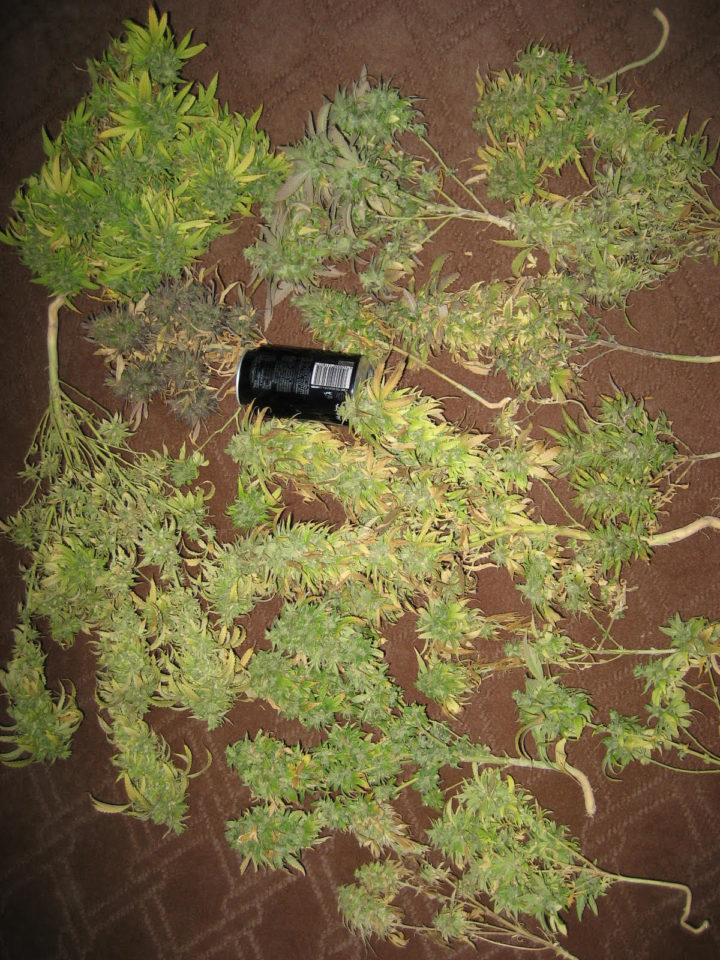U.S. veteran, combat field medic, sometime paramedic and high security specialist “Doc” R. Gage Amsler, otherwise known as Doc Gage, begins his autobiography, “A soldier going to war knows to expect the unexpected,” with Amsler stating he encountered his share of expected and unexpected trauma during his time in Kuwait, Iraq and Afghanistan supporting U.S. military forces as a special forces operative.
But what he found in the mountains along the border at the mouth of the Taliban Trail between Pakistan and Afghanistan was something he thought may have only existed in folklore.
Courtesy of R. Gage Amsler. Foraged plants Amsler brought back to his hooch from the Afghani Trail, with a soda can for reference.
“I’d heard plenty about this mystical strain of cannabis when I was working as a full-time medic, but had no idea how much of it was true,” he shared. “Could this strain of Hindu Kush be the salvation for PTSD for my fellow Vets?”
Post Traumatic Stress Disorder (PTSD) after wartime experiences is common, and Amsler was not spared. Flashbacks, nightmares, anxiety, a sense of detachment from loved ones and difficulty functioning in everyday life are just a few symptoms of war that followed the medic home.
Holding himself up on 34 acres in his home state of Michigan upon his return from eight years as a wartime medic, he said he began drinking himself to death. After two years of fighting his demons, he began writing of his experiences as therapy.
“People aren’t getting the help they need when they get home,” he continued. “We are left to fend for ourselves. We are marginalized, isolated and unable to hold down jobs because of the PTSD. My story is about my own personal pain, but it’s also about this powerful …
Read More
Author: Sharon Letts / High Times






